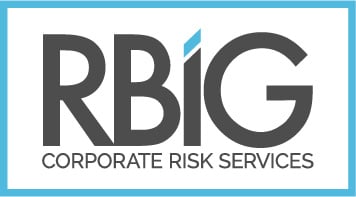Whilst the directors and officers insurance market continues to harden, there's plenty executives can do to take out or maintain a cover increasingly seen as vital - without simply succumbing to massive premium rises.
The Insolvency Service's Q3 figures for corporate insolvencies are awaited with an interest which is not so much keen, as nervous.
The data, which is due in October, will be the last before temporary business protection measures end.
In a bid to prevent Covid-inspired business failures, the Corporate Insolvency & Governance Act 2020 has prevented the serving of winding up petitions and suspended directors' personal liability for wrongful trading.

The deadline for lifting these measures has been extended four times but they are now set to expire on 30 September. With that in mind, the Q4 figures may well be anticipated with dread.
Whilst there is some comfort to be taken from the economic bounce which has followed the gradual easing of Covid restrictions, most commentators still predict there will be a significant increase in business failures.
Financial distress
At the end of July, corporate recovery specialists, Begbies Traynor, reported a 24% year-on-year increase in the number of businesses suffering "significant financial distress".
That's 650,000 businesses struggling to keep their corporate heads above water.
Begbies Traynor partner Julie Palmer did not hold back in describing her concerns, saying:
"....Covid has dramatically accelerated the UK’s zombie business population, with many businesses taking on unsustainable government backed debts during the pandemic in order to survive.
"Whilst “Freedom Day” on 19th July has given many businesses a sense or normality, history suggests that unmanageable levels of debts and subsequent overtrading will eventually take their toll on these businesses."
Optimism
She did, though, offer a glimpse of optimism by noting:
"Yet, the last quarter has demonstrated that it is not all doom and gloom for businesses. Consumers want to spend, businesses want to expand and adaptation provides an opportunity for fresh shoots in the economy.”
As RBIG have pointed out before, a surge in insolvencies will have a ripple effect, impacting wider supply chains and hitting otherwise financial healthy businesses.
It's why we've talked of the importance of trade credit insurance in offering protection against the late or non payment of debt.
There may, too, be increased allegations of wrongful trading as the government lifts its suspension whilst businesses are still finding their feet - and assessing longer term viability may still be tricky.

Directors & Officers' risk
But the directors and officers of those businesses - particularly private companies - which are actually in financial distress, could face another risk. Legal action.
When a business goes bump, insolvency practitioners may look to recover losses from its directors. Such actions are one of the more common causes of directors and officers insurance claims.
But Covid, and our exit from restrictions, could also increase risks for the directors and officers of businesses which are in rude financial health.
Return to work risks
Global business insurer Allianz Global Corporate & Speciality has noted that:
"The return to work is fraught with peril, with particular regard to shareholder derivative actions, but also in relation to other forms of litigations. Employers can be in a tough spot when when asking employers to return, and in particular, on deciding which ones to choose and can be restricted by regulations regarding what they can ask and how they can act, which could bring problems."
Insurers have expressed concerns about the potential for increased number of employment practice claims should procedures not be strictly followed when making redundancies.
Shareholders may well also look to how well a business prepared for the pandemic and recovers its trading position in relation to competitors. Those that are slower out of the blocks than others could face actions.
Outside of Covid, there are concerns too that businesses might increasingly face class actions in relation to Environmental, Social & Governance issues such as climate change.

Regulatory actions
Regulatory actions also appear to be on the rise.
At the end of July, specialist law firm BLM reported that directors and officers of UK financial services firms had been hit by nearly £200m in fines since 2020.
The figure since 2016 was a weighty £480m, with fines and sentences handed down to companies of all sizes, including micro-businesses.
Alex Traill, professional indemnity partner at BLM told Insurance Business magazine:
“As our Tracker data reveals, it’s a particularly pertinent issue for smaller companies,” he said.
“We typically see a coverage gap for SMEs, either through a lack of awareness around D&O protection, or because there’s a belief that the company doesn’t require cover. These figures show that simply isn’t the case, with D&Os of companies of all sizes handed hefty fines or even custodial sentences."
D&O rates rise
Whilst the combination of Covid and wider factors is increasing potential risk, the market for Directors & Officers insurance is hardening.
In April, Mike Keating, chief executive of the Managing General Agents' association told an Insurance Times Commercial Lines keynotes panel that "most lines are carrying double digit rate increases" and that:
"Professional indemnity and D&O are absolutely brutal and it’s not just a case of rate increases – a hard market also brings restrictions in capacity and a reduction in cover."
In February the Financial Times reported (subscription) that the cost of insuring directors had more than doubled in the previous year.
It also noted warnings that mooted regulatory changes - which would see directors becoming personally responsible for the accuracy of financial statements - would add cost.
Its an assessment with which we at RBIG concur. A hardening market is set to harden some more. It's not all doom and gloom though...
Protecting against premium rises
There are things you can do to mitigate against the impact of the wider market increase in directors and officers insurance premiums. The biggest threat is, in fact, inertia.
Failure to take out or renew directors and officers insurance leaves both executives and the business exposed. It's not a Cinderella cover.
If you're a business owner, director or senior manager, take a step back and carefully consider the risks your business might face.
Take expert advice
Then talk to and take advice from a commercial insurance broker with experience and expertise on arranging what is a specialist insurance.
They'll be able help you best present your corporate risk to insurers and identify a policy to match.
It's not a matter of simply picking up a policy straight off the shelf. Limits, extensions and coverage vary considerably between insurers and policies. One size does not fit all.
Some insurers may also have a greater appetite or aversion to risks in particular sectors - and that landscape is changing in the face of current and anticipated economic challenges.
Succumbing to massive rate hikes is not inevitable. Early preparation coupled with sound advice from a business insurance specialist can help you secure or maintain what is regarded as an increasingly vital cover.
To arrange a free, no-obligation consultation with an expert advisor in directors and officers insurance, contact Stephen Hodgson on 0161 304 5004 or click to email.





